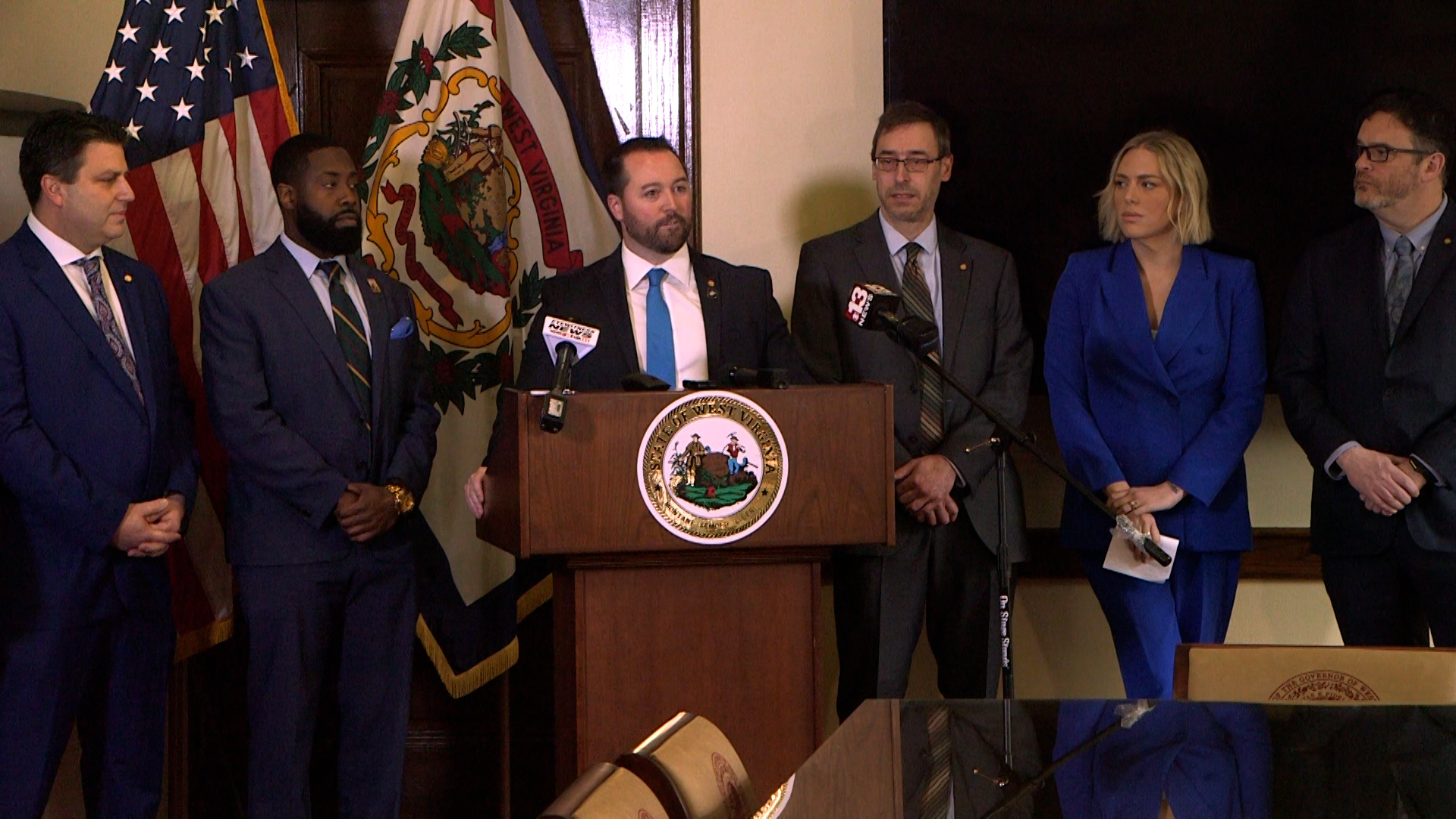House Democrats held a “halfway through the session” press conference Wednesday morning. The theme of the presentation was what has NOT been accomplished to help the people of West Virginia.
The minority house caucus and Del. Shawn Fluharty, D-Ohio, especially, called this a “do nothing” regular session, saying the Republican supermajority’s proposed bills do nothing but infringe on people’s constitutional and personal rights.
“We have proposals that offer workers protections and teachers protections and better pay for our correction officers and our school service personnel who need it,” Fluharty said. “We have bills that expand mental health resources and access to clean water, but those bills don’t see the light of day.”
Democratic delegates said legislators are more focused on putting guns in classrooms than teachers in classrooms. They voiced concerns over supermajority bills they say would defund the police and make it easier to reverse local anti-discrimination ordinances.
House Minority Leader Doug Skaff, D-Kanawha, said Republican priorities are skewed at best.
“What have we done to fix our roads, public education, mental health in this state, PEIA, foster care, help for our counties in need with the ARPA funds that were supposed to be designated to help them get back on their feet,” Skaff said. “What have we done to help our seniors? How many people out there on the campaign trail said we’re going to put more guns in the classroom, not teachers.”
Del. Joey Garcia, D-Marion, said many of the issues and bills that Republicans and Democrats do agree on do not get properly advanced.
“We agree on things like correctional pay raises, like trying to fix PEIA so that hospitals don’t stop accepting it like up in Wheeling – and we actually have bills that are there,” Garcia said. “I don’t understand the hesitancy to move those forward. We pass things through minor committees, and we’re waiting for Finance to take them up.”
Del. John Williams, D-Monongalia, said most of the bills all House of Delegate members agree on are not the “heavier lifts.”
“We had a bill passed yesterday that’s sponsored by one of our members that deals with economic development, opening up recreation to allow people to drink alcohol outside at fairs and festivals,” Williams said. “On issues like that there is some agreement. But when you talk about these heavier lifts, we had an amendment yesterday to give a child tax credit to every child in the state of West Virginia. Would it cost them money, but what is the real price of providing relief to families? It seems to be these bigger issues where we really deviate and can’t come to agreement upon.”
House Democrats finished by saying there are 30 days left to pass meaningful legislation to help all West Virginians.
